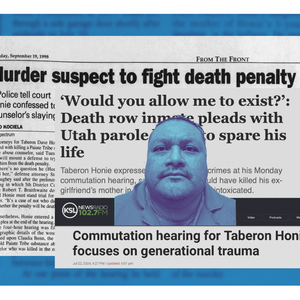
In a forthcoming article in the Journal of Criminal Law and Criminology, released online in July, Ben Jones argues that, despite the popular conception of death-penalty abolition as a politically progressive cause, its future success may well depend upon building support among Republicans and political conservatives. In The Republican Party, Conservatives, and the Future of Capital Punishment, Jones — the Assistant Director of Rock Ethics Institute at Pennsylvania State University — traces the ideological roots of the recent emergence of Republican lawmakers as champions of death penalty repeal to long-held conservative views. He writes, “there is a cogent and compelling conservative argument against the death penalty: it is incompatible with limited government, fiscal responsibility, and promoting a culture of life.” Jones says that for much of the 20th century, the death penalty was not a partisan issue, as Republican governors signed legislation abolishing the death penalty in Kansas in 1907 and Minnesota in 1911. Later, Republican governors commuted the sentences of all prisoners on death row in Arkansas in 1970 and in Illinois in 2003. Jones believes that Republican lawmakers’ increased interest in criminal justice reform “has created an opportunity to reframe the death penalty in a way that resonates with traditional conservative concerns.” Though Jones is uncertain whether the nascent Republican legislative opposition to capital punishment is “part of a longer-term trend,” he says, if it is, “Republican and conservative opposition will provide important opportunities — which otherwise would be absent — to advance efforts to end the death penalty in the U.S.” One opportunity may be in Utah, where conservative Republican state senator Stephen Urquhart led an effort that came close to achieving legislative repeal of the death penalty in 2016. A July 19 Salt Lake Tribune editorial argued that “[e]nding the death penalty would save money and save souls.” On the same day, Rethlyn Looker, the Utah state chair for Young Americans For Liberty, wrote in a Tribune op-ed, that “as fiscal conservatives,” the cost argument to abolish capital punishment “should resonate with us” because, “in Utah, it costs at least $1.6 million more to sentence a person to death than to sentence them to life in prison without the possibility of parole.” But, Looker writes, the “most compelling reason” to oppose the death penalty is still “the fact that we simply can’t trust the government to get something this serious right.” She says, “[f]or all of the reasons we distrust the government to do the right thing in so many other areas, we should distrust the government to end a person’s life.”
(B. Jones, “The Republican Party, Conservatives, and the Future of Capital Punishment,” Journal of Criminal Law and Criminology, forthcoming, February 2018; Editorial, “Ending the death penalty would save money and save souls,” Salt Lake Tribune, July 19, 2017; R. Looker, “Op-ed: Mistrust of government drives millennials to question Utah’s death penalty,” The Salt Lake Tribune, July 19, 2017.) See New Voices, Costs.
Costs
Sep 11, 2024


